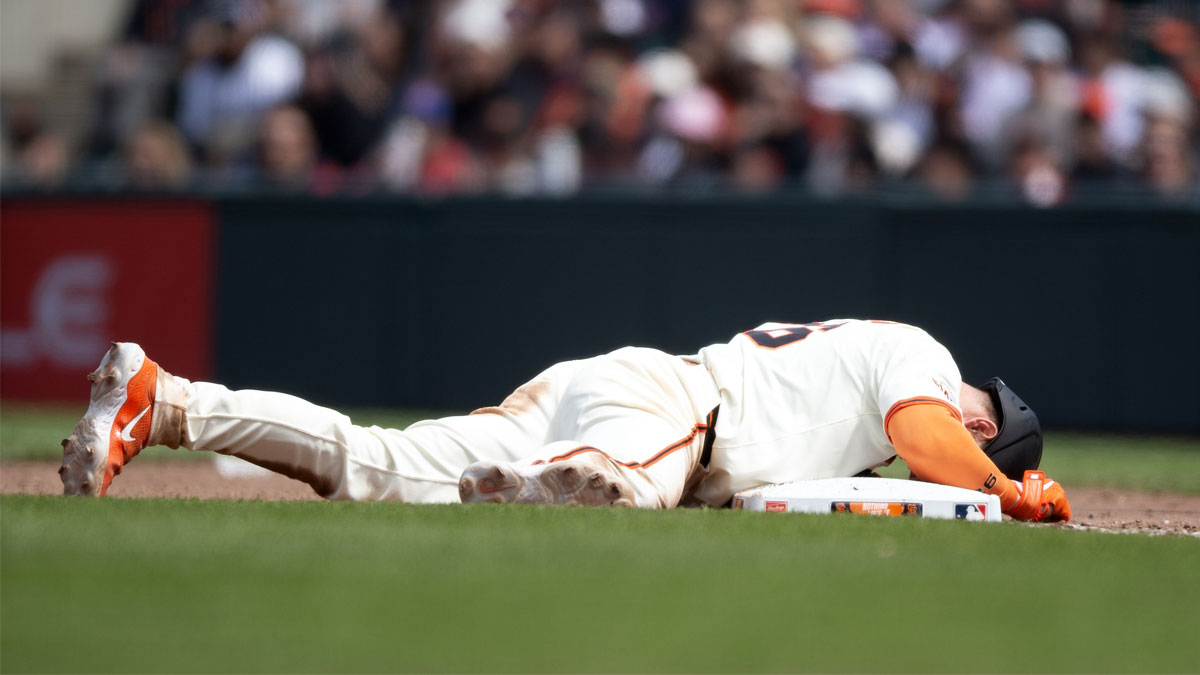Five innings into the home opener in 2004, Barry Bonds got the pitch he was waiting for. He dropped his bat, arched his back and watched as the ball sailed over the cheering fans in the arcade and toward McCovey Cove, splashing down just in front of a man in a blue kayak.
"There it goes!" Jon Miller yelled into his microphone. "And that is number 660. He has tied Willie Mays."
As Bonds celebrated, his godfather met him in front of the dugout. Willie Mays was, appropriately, holding an Olympic torch he had used during a relay two years earlier. The two embraced as a sellout crowd roared.
With our All Access Daily newsletter, stay in the game with the latest updates on your beloved Bay Area and California sports teams!
It was a special moment, one of the best in franchise history, but should it actually have happened years later?
When he retired in 1973, Mays was third in Major League Baseball history with 660 homers, trailing only Hank Aaron and Babe Ruth. He still ranks fifth, with Bonds leading the way at 762, seven ahead of Aaron. Bonds passed Aaron in 2007, but Wednesday, on Mays' 89th birthday, we're posing a fun hypothetical.
What if Mays had played his career at Oracle Park instead of the spacious Polo Grounds and windy Candlestick Park? Would he have hit so many additional homers that Bonds would have been chasing Mays down, not Aaron?
[GIANTS INSIDER PODCAST: Listen to the latest episode]
San Francisco Giants
Find the latest San Francisco Giants news, highlights, analysis and more with NBC Sports Bay Area and California.
In the new book "24: Life Stories and Lessons from the Say Hey Kid," co-written with Mays, the San Francisco Chronicle's John Shea talks to players, executives and broadcasters who were around Mays and believe he lost dozens of homers to the ballparks and elements. Orlando Cepeda told Shea that Mays could have hit 750 homers in more hitter-friendly conditions. Hall of Fame writer Bob Stevens said, "In any other ballpark, Willie would have hit 800 home runs." Hall of Fame broadcaster Lon Simmons said Mays would have broken Ruth's record (714) had he played somewhere other than Candlestick.
The numbers don't totally back all that up, though. Mays actually hit more home runs at home (335) than on the road (325). He averaged a homer every 15 at-bats at Candlestick and every 15.4 at-bats at the Polo Grounds. On the road, it was one every 17.4 at-bats. Mays played 178 games at the two friendlier parks -- Milwaukee County Stadium and Atlanta Stadium -- where Aaron hit most of his homers, averaging one every 15.7 at-bats.
Mays was remarkably consistent no matter where he was taking his hacks, and in the new book, he tells Shea that he's not bitter about playing so many games at Candlestick.
"Maybe I could have hit another 50-80 home runs if we didn't play there," he said. "I don't know, but I didn't mind it. I didn't have problems with the wind. Like I said, it's not the ballpark you've got to worry about, it's the pitcher."
Like anyone playing in a big park, Mays did lose homers, but it's hard to argue that it impacted the all-time record too much. While center field at the Polo Grounds was comically deep, it was only 279 down the left field line. Plus, Bonds later had 1,744 at-bats of his own at Candlestick before moving to Oracle Park, which is notoriously tough on left-handed hitters.
Perhaps a career spent at Oracle Park wouldn't have made that much of a difference for Mays, but there was another factor that did significantly hurt his chances of being the home run king.
Just 34 games into his second season, Mays began serving in the Army because of the Korean War. He missed most of the 1952 season and all of the 1953 season, totaling roughly 1,000 missed at-bats.
As a rookie in 1951, Mays hit 20 homers. He had just four when he left in 1952, but returned two years later and hit 41. Over those first three seasons, Mays averaged one homer every 17.8 at-bats, so it's reasonable to say he lost out on 55 to 60 homers because of his service.
If you want to be more aggressive, you can point out that Mays returned and immediately won the MVP award, and the next year he hit 51 homers. Take his pace from his first year back and extrapolate it over those missed at-bats and you have about 72 lost homers.
Since it is his birthday, and he did have to deal with those tough ballparks, let's go with the latter number. Mays, without those lost years, could have finished his career with 732 homers. That still puts him behind Bonds' record, but it does slide him past Alex Rodriguez (696) and Ruth, the longtime home run king.
[RELATED: How Slater has taken on Giants leadership role at odd time]
In "24," Mays acknowledges that those two seasons possibly cost him a chance to briefly hold the record.
"I think I would've gotten the Babe without the two years in the Army," he told Shea, "But a lot of us went in the service. You have to serve your country. I'm okay with 660. I'm proud of that accomplishment."


